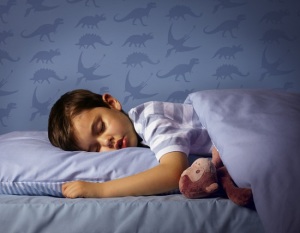

The problem of wet sheets has to be faced by all parents without exception. Therefore, the question of how to wean a child to write to bed at night is relevant for every family.
If the night "accidents" of a baby at the age of 1-2 years are perceived by most parents quite adequately, then the inability to control nighttime urination at the age of 5 causes natural concern.
Sometimes the problem of wet sheets is explained by the fact that the child is unwell. For example, bladder diseases and, oddly enough, the presence of adenoids can lead to such results. Therefore, in some cases, it will be possible to get rid of wet panties with the help of a doctor. When should you start worrying?
In these cases, it is necessary to visit a pediatrician and, possibly, undergo an examination prescribed by a doctor.
Sometimes a visit to a child psychologist is necessary. Usually, psychological problems are indicated by the fact when a child, who has long abandoned diapers, again began to write in his pants.
Such a regression in development may be evidence of the stress that the child has endured. Therefore, in no case should you scold him, on the contrary, you need to show maximum love and patience. However, even the most attentive and loving mother cannot always figure out what exactly scares and worries the baby. In this case, you will need the help of a psychologist.
Many pediatricians, including Evgeny Komarovsky, urge not to force things. If a child at 3 years old regularly wets the bed, there is no need to worry, let him continue to sleep in a diaper until he wakes up dry every morning.

If the parents nevertheless decided to start, then the following tips will help them:
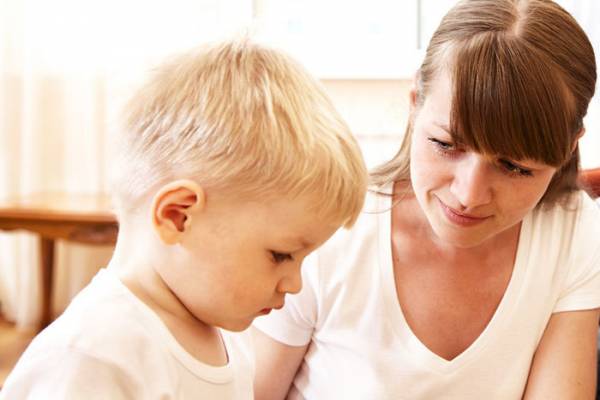
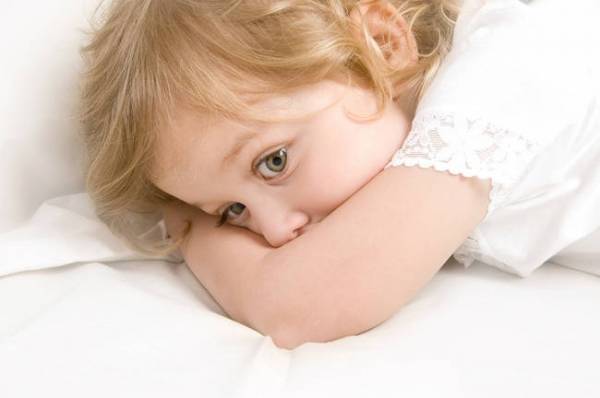
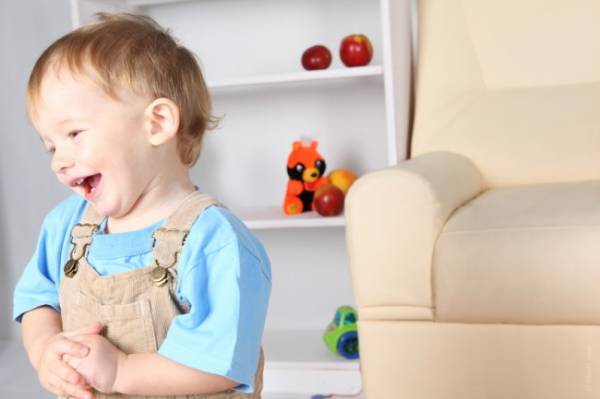
So, weaning your baby to wet the bed is not always easy. Therefore, moms and dads will have to show maximum patience and, in no case, scold the child for failures.
Bedwetting, as a diagnosis, is made no earlier than the child is 6-7 years old, until this time the phenomenon is considered natural and normal. Many mothers are surprised why a child pees in bed at night, if during the day he does fine without diapers. As practice shows, the process of night emptying of the bladder without the intervention of parents is corrected quite rarely.
You will have to try a little so that the baby learns to restrain himself, wakes up and goes to the potty or toilet on his own, leaving the bed dry. Before turning to psychologists and looking for the cause of the phenomenon in the subconscious of the child, it is recommended to try to cope with it on your own.
It is not necessary to give up diapers at the same age as your friends. You can think about this only on the condition that the baby can withstand the whole day without problems, never once wetting his pants. In this case, we put the little one to sleep on an additional diaper with a layer of oilcloth or use disposable absorbent underwear. Each person develops individually, some children will need this approach to understand the difference between the comfort of a dry bed and an unpleasant wet sheet, others will require a more in-depth approach.
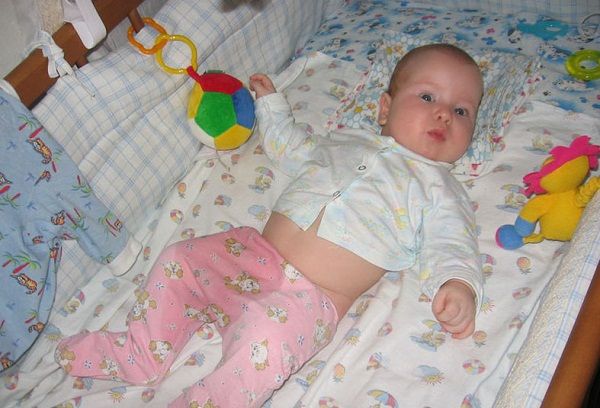
During the waiting period, you must adhere to the following recommendations:
Tip: Keeping a diary must be organized in any case. Regular recordings will help determine what factors and events cause your baby to incontinence. Their consistent exclusion will contribute to the elimination of night "accidents".
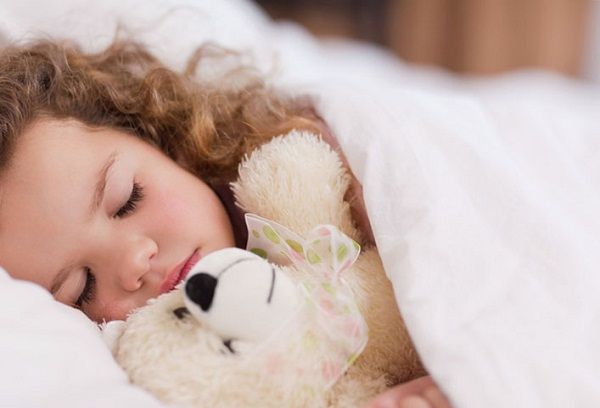
It is strictly forbidden to scold children for peeing in bed at night. This phenomenon is due to the individual characteristics of the development of the child, and not his bad character. Parents' obsession with the problem will only stimulate the child's self-doubt and incontinence will become chronic. In this case, the process will already be classified as a disease, and in order to get rid of it, you will have to seek help from specialists.
If time passes, the work is carried out according to plan, and progress is not observed, we move on to a more complex impact.
There are several methods for weaning a child to write to bed at night. But they will give the desired result only if the chances of filling the child's bladder are minimized. A pronounced positive effect in this regard can be expected if the following actions are carried out:
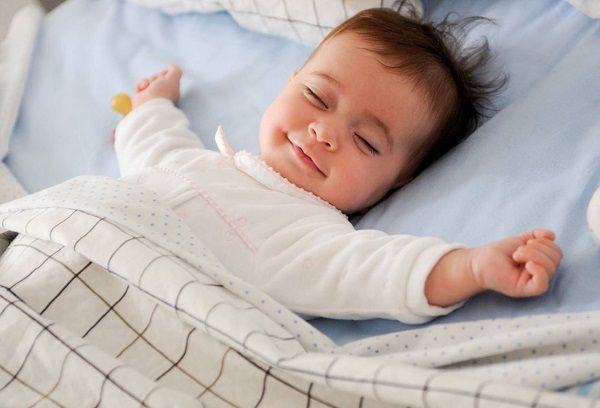
Tip: Do not give your child milk before bedtime, give him dairy products. The components of the compositions cause drowsiness and it is difficult for the baby to wake up, even if he feels that his bladder is full.
In addition to the above manipulations, you need to make sure that the baby's bed is warm enough and he does not freeze at night. Sometimes urination turns out to be an attempt by the body to warm itself naturally.
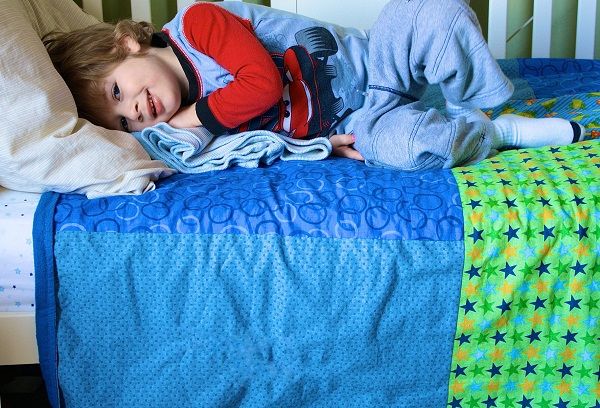
The listed activities often guarantee the desired result, but sometimes you have to resort to additional measures:
If all the options have been tried, the child is already seven years old, and he has not gotten rid of the unwanted habit, it is worth visiting a doctor. There is nothing shameful in this. Sometimes just one visit allows you to establish the cause of the condition and find a solution to the situation. Particular attention should be paid to children who cannot control urination not only at night, but also during the day, especially if they are already five years old.
The most beloved and long-awaited child was born, and with it OVERWEIGHT. But worries about the child do not leave time either for themselves or for gyms. And most diets can have dangerous consequences for both mom and baby.
But I really want to put on my favorite dress, high heels again and look great, as before ... There is a way out - moms' stories about how easy it is to lose 20+ KILO!

Your child pees at night - what to do?
All parents raising a baby dream of finally having “dry” nights. Who does not get tired of the picture of constant change of clothes, washing, drying?
Mom is waiting for a month, two, three, is nervous, and the baby perceives nightly incidents as her own disadvantage. Nothing helps - neither explanations, nor abuse, nor ignoring this fact. Are you familiar with such a situation?
Enuresis or urinary incontinence in the world is much more common than many people think. Just think about the statistics: approximately 500,000 children under the age of 16 pee in bed at night.
Why does a child urinate at night? Is there any way to deal with this phenomenon? If yes, then how?
Let's try to solve this issue together.
The main cause of nocturnal enuresis is age. Yes, that's age. Babies can't control urination the way adults do. In an adult, everything happens as follows: when the bladder is filled to a certain level, a signal goes from it to the brain and the person wakes up. In children, this signal is very weak, so they do not always wake up.
The dependence is as follows: the younger the toddler, the less often he correctly responds to the signal about the filling of the bladder. This process is poorly regulated up to 5 years. Therefore, if your baby pees at night before the age of five, you just need to survive this period and outgrow it.
The second reason for nocturnal enuresis is that the child's urinary system develops slowly and the filled bladder does not withstand long without emptying. This feature the child must also outgrow over time.
The third reason is the psychological distress of the child. If the baby is constantly overloaded, he is under pressure from adults, he becomes tense and quickly gets tired mentally. Being in the state of a driven animal during the day, the child relaxes greatly at night and does not feel the urge to urinate.
The fourth cause of enuresis is various diseases such as diabetes, urinary infection, kidney disease. In this case, involuntary urination occurs not only at night, but also during the day.
If the baby pees in bed periodically, then this may be caused by some kind of stress. For example, problems in kindergarten, school, family, jealousy for a younger child, etc.
It is very important not to blame the little one for anything. You can not shout at him, scold and reproach him in this situation. The kid is not to blame for waking up in a wet bed, he simply cannot control himself in a dream.
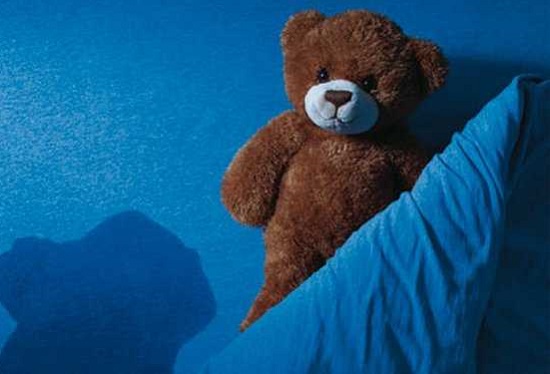
Try to pay more attention to the baby, monitor his emotional state, avoid everyday domestic conflicts, especially in the presence of the baby. If you have another child, do not forget about the older one. He must understand that he is still important to you and loved by you.
Do not let the little one drink a lot before going to bed. Try to make sure that the bulk of the liquid enters the body in the morning and afternoon.
Make sure your child goes to the bathroom before going to bed.
Avoid any drinks that contain caffeine.
Come up with a simple but effective reward system if the crumbs had a dry night. Then he will have an incentive to overcome this weakness.
Take care of the protection for the baby's crib so that his nocturnal enuresis does not cause you much trouble.
You can have a special urinary incontinence calendar. Let the baby draw the sun in it after each “dry” night. So he develops a sense of joy for success.
If you go to bed later than your child, ask him to go to the bathroom. Only do this when the child is fully awake. You can not sit on a potty or toilet half-asleep baby.
Train your bladder. If the child wants to write, ask him to be patient. This can be done on a walk, on the road, in the store. Also, teach your baby to interrupt urination for a short time so that he understands that he can control this process.
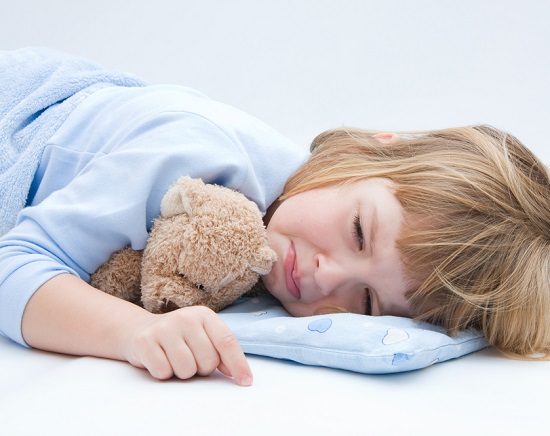
Should a baby wear a diaper at night if he pees in bed?
Experts believe that this will only delay the process. The baby will feel dry, he will not have any discomfort, so there will be no need to control urination.
Do I have to wake my baby up at night to ask for a pee?
Of course, if you notice that the baby woke up and tossed and turned from side to side, be sure to offer him to pee. But if he sleeps soundly - it's not worth it.
Finally, I would like to note that if the problem drags on for a long time, it is better to consult a doctor.
Today, traditional medicine offers a drug that allows you to cope with the problem of nocturnal enuresis. These are tablets or nasal spray "Desmopressin" (Desmopressin). It reduces the amount of urine produced at night.
Be always healthy, do not get sick!
Bedwetting in children from a year to 5 years or more is a common occurrence in our age of diapers. This unpleasant phenomenon (among doctors it is called enuresis) spoils the life of both children and parents. Sad statistics suggests that in recent years the number of cases of this disease in children has increased. The reasons may be different. Below we will consider the main ones, and also try to answer the question: what to do if the child pees at night.
It often happens that parents begin to sound the alarm early and try to see something unnatural in the behavior of the child. Even if a baby of 3-4 years old peed himself at night, there is nothing to worry about. Childhood is the main cause of bedwetting in children. Until the age of five, babies are often unable to control urination at night. This is due to too deep sleep. It is worse if “surprises” happen to the child in the daytime. In this case, it would be useful to consult a doctor, although, most likely, no deviations will be found.
In some cases, bedwetting in a child is the result of psychological trauma or other psychological problems. These include:
All these problems make the baby live in constant stress all day long (often constipation occurs against this background, it is difficult for the child to go to the toilet for small needs during the day). Only at night the body can relax and do its own thing.
These include deviations in the development and health of the child:
Most often, children of the second or third year of life and older are written at night.
If there is any of the above deviations, enuresis manifests itself not only at night, but also during the day. In this case, urgent treatment is necessary.
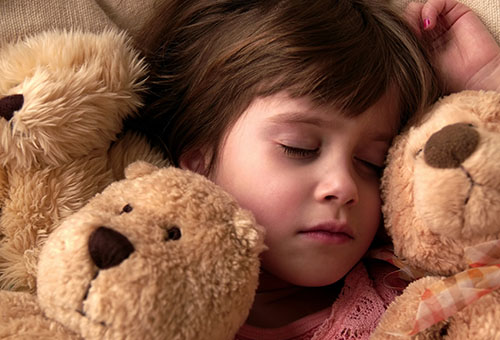
If bedwetting every night is not caused by a disease or a psychological problem, but by age and imperfection of the urinary system, then at a certain age this “ailment” should disappear by itself.
Different doctors call different data. According to some, 90% of children outgrow childhood (primary) enuresis by the age of 8-9 years.
Others believe that already at the age of 5, the child's body can cope with the functions assigned to it and the child will stop writing at night.
Anyway, if after 5 years you often find the baby's crib wet, then it is better to consult a pediatrician.
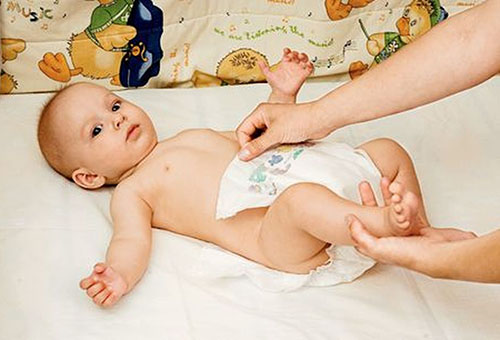
Many doctors tend to think that the main reason for the frequent cases of childhood enuresis lies in the popularity of disposable diapers. They allow the child to always stay dry and inhibit the natural instincts that need to be developed.
So, already at six months, the baby can quite consciously restrain the urge to urinate so as not to lie in wet diapers. A baby dressed in a diaper does not know what a wet diaper is, so he pees when he wants to.
In this case, you can advise parents to take the following measures:
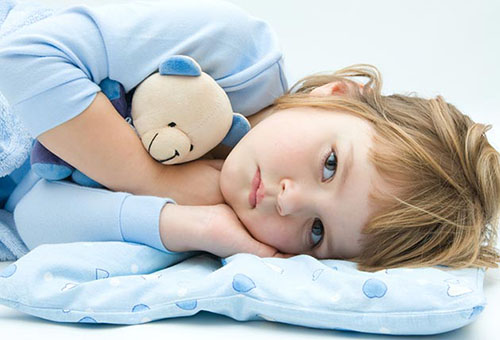
The first thing parents should do to rid their child of the habit of pissing in bed is to create a comfortable and friendly environment in the house. Do not take it out on the baby, do not reproach him, and even more so do not be ashamed of the described sheets.
Yes, washing a bunch of things every day is a dubious joy, but the psychological health and comfort of the baby should be above all.
These measures can greatly reduce the number of sheets described, but still they are not a solution to the problem.
There are four ways to deal with childhood enuresis:
It is easy to guess that he means the use of special means: tablets, potions, suppositories, etc. The doctor can prescribe antibiotics, antidepressants, drugs that increase the tone of the bladder, and others.
You should not delve into this topic, since only an experienced doctor can prescribe the right treatment. But it is important to note that it is preferable to treat childhood enuresis with alternative methods, such as physiotherapy or psychotherapy.
These areas of treatment include:
It is better to contact a competent specialist to prescribe a course of a particular procedure. Not bad struggles with children's urinary incontinence homeopathy.
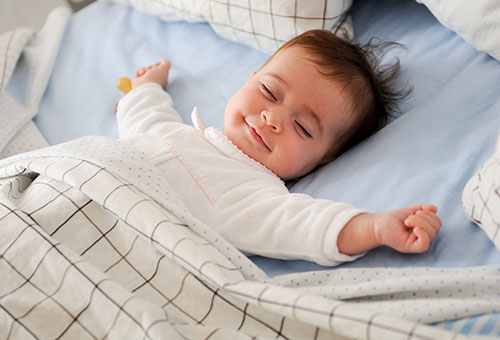
This method is used when incontinence occurs against the background of psychological problems in a child. In this case, the consultation of an experienced psychologist is simply necessary. Psychotherapeutic methods such as:
The last two methods, unfortunately, are not available to everyone, but the rest work just as well.
At home, you can implement several independent psychotherapeutic methods.
Sounds barbaric, but try waking your baby every hour all night for a week. This is necessary so that the child does not have time to describe the bed and can go to the potty when needed. Next week, increase the period between awakenings.
If you notice that the child begins to toss and turn in his sleep and sleep anxiously, gently wake him up and put him on the potty. It is likely that it is during the period when the baby’s sleep becomes restless that he wants to go to the toilet.
With older children (6-7 years old) you can practice a kind of auto-training. Let the baby repeat the installation after you: “When I want to go to the toilet, I will wake up and pee in the pot” (words can be changed, the main thing is the meaning). Get a notebook in which you will mark "dry" nights and "wet" nights. For 5 or 10 "dry" nights, reward the baby.
On the Internet and in specialized literature, a large number of psychological games to correct the behavior of children. You can get advice from a psychotherapist, and he will also tell you what games are best to play with your child in order to wean him from the habit of writing to bed.

Parsley tea can help treat enuresis
Traditional medicine has its own fairly effective recipes for the treatment of childhood enuresis. However, before applying them in life, it is worth finding out why the child pees at night.
But remember that before using this or that folk remedies it is necessary to consult a doctor (physician or naturopath). It is better not to give herbal infusions to children of the second year of life.
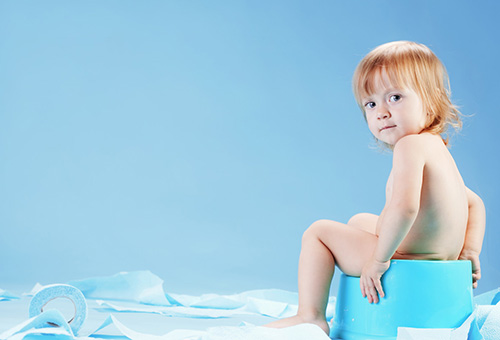
When a child pees at night at 2-3 years old, this is the norm, but after five years, the baby should already control natural urges. In order to avoid / get rid of childhood enuresis in children over five years old, follow these rules:
Only the kind patient attitude of the parents will help the child get rid of his little night problem.
It would be high time to part with diapers, but your child pees at night. Is it normal? Until what age does the baby have the right to nightly troubles, and when is a wet bed already a problem?
Let's start with the fact that modern parents often suffer from the desire to force the development of their children. Therefore, be vigilant and treat with healthy skepticism the stories of a neighbor that her daughter “asks” for a potty from four months old or persistent suggestions to start preparing a child for school from the age of three. Throughout childhood, the child gradually matures all organs and systems, and only by the age of sixteen does the body of a teenager begin to function in the same way as the body of an adult.
Young children learn to control the process of urination gradually. In an adult, as the bladder fills, a signal from it is sent to the brain, and the person experiences a conscious urge to urinate. If this happens at night, then the sleeper wakes up. In children, the formation of this process takes place, according to experts, during the first three to five years, and if up to five years a child pees at night from time to time in bed, this is absolutely normal. Moreover, such an “accident” can also occur during the day, if the child is enthusiastically playing or some other activity has completely captured his attention.
How should parents behave in such cases? If your child pees in bed or pants from time to time, do not scold or punish him in any way. Punishments here are meaningless, because the baby simply does not yet know how to fully control himself. Moreover, overly strict parents who are inclined to scold and punish their son or daughter for such “accidents” can just provoke neurotic enuresis in their child in the future.
If the "accident" happened during the day, just help the child change and kindly remind him that it is better to go to the toilet on time than to have trouble with wet panties. If the child pees at night, then make sure that you can quickly eliminate the consequences. To protect the mattress for a preschooler, it is better to lay an oilcloth and use blankets that can be washed. In order for the child not to be afraid to get up at night to use the toilet, leave a burning nightlight in the room.
Do not give your child too much liquid in the evening. Also avoid watermelons, sodas, and caffeinated drinks before bed. Make sure that the room where the child sleeps maintains a comfortable air temperature - children who are cold in their sleep pee much more often at night. In the spring-autumn period, it is better to put on warm pajamas for a child, since it is quite cool in rooms without heating, and children very often open up and begin to freeze during sleep.
Some parents try to keep the bed dry by potty training at night. However, experts do not recommend this method. In children, from these actions, the process of controlling urination will not form faster. But the child will experience discomfort from several forced nighttime awakenings for sure. To see this, just imagine that you were woken up three times during the night to force you to go to the toilet.
However, it happens that the child has already learned all hygiene skills and has not urinated at night for a long time, and suddenly starts to write in bed again. This is already a signal that something is wrong and parents will have to think about why the child pees at night again. Parents of children over three years of age who regularly wet the bed should also look for the cause of enuresis.
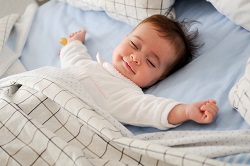
The cause of nocturnal enuresis in a child may be physiological problems. So, a child urinates at night with organic lesions of the spinal cord or brain, when the signal about a full bladder simply does not reach the brain. Enuresis also affects children with congenital malformations of the genitourinary system. However, such pathologies are usually detected by doctors quite early. If a dry bed has long become the norm for a child and suddenly he began to urinate at night, then you should consult a doctor and get tested for infections that lead to inflammation of the genitourinary organs. Nocturnal enuresis can be one of the symptoms of pyelonephritis, cystitis, or urethritis.
In children, infections of the genitourinary system can occur in a latent or erased form, therefore, if your child urinates at night, pay attention to whether he also has other symptoms of diseases of the urinary system: temperature rises without manifestations of SARS, periodic pains in the lower abdomen or in the lumbar region , lethargy, daytime "letting" of urine.
Enuresis in a child can also provoke constant psycho-emotional stress. The difficult atmosphere in the family, when adults constantly quarrel or live in a state of hidden conflict, often causes the child to urinate at night. Enuresis often affects children, to whom adults make excessive or conflicting demands. Such children are almost constantly in a state of psycho-emotional stress during the day, the psyche gets tired and complete relaxation, which comes as compensation at night, leads to the fact that the nighttime urge to urinate becomes very weak, and the child pees in bed. The complexity of such cases lies in the fact that parents may not always be aware of their own problems or pedagogical mistakes, and often sincerely believe that everything is fine in the family.
How to understand whether psycho-emotional problems in a child are the cause of nocturnal enuresis? If your baby has not found any infections and physiological abnormalities, and enuresis does not go away, then you should seek the advice of a neurologist and a good psychologist. A professional psychologist will definitely offer the child a number of drawing techniques that will fairly objectively allow him to judge the situation in the family. Most often, in cases of enuresis with a psycho-emotional nature, not only and not so much a child needs correctional work, but adults close to him. Drugs can stop enuresis, but if the situation in the family does not change, then the neurosis in the child will remain and after a while it can manifest itself in the form of bronchial asthma, allergies or some kind of phobia. Experts advise all parents to remember that the problems of children under eight years of age are a signal of obvious or hidden trouble in the family or problems in parent-child relationships.
Another reason why a child urinates is the appearance of a newborn in the family. In this case, enuresis is a kind of protest, expressed in regressive behavior (regression is a movement back into more childish forms of behavior). The child sees that everyone is touched by the newborn, he gets maximum attention and care, despite the fact that he can’t do anything, and besides, he also stains diapers. The protest behavior of the elder in this case can be expressed not only in wet sheets at night and panties during the day - the child may begin to speak worse, demand a pacifier or a bottle, be capricious over trifles.
In order to avoid such a situation, try to prepare the elder for the appearance of the baby in the house in advance. Do not lisp and do not be touched by a newborn in the presence of an older child, try to allocate time so that you can take a walk, read or go somewhere with the older child together at least from time to time. Emphasize how great it is to be big, because you can ride a bike, eat candy, play with friends, watch your favorite cartoons - and kids can't do all this. The most important thing here is not to scold the child, not to demand certain behavior from him just because he is the eldest. If you show patience, understanding children's feelings and manage to find time during the day that is intended only for the older child, the problem will gradually be resolved.
Some children who started attending kindergarten, it is quite difficult to go through an adaptation period. Another daily routine children's team, the requirements of educators cause psycho-emotional stress and as a result, the child pees at night. A similar situation may arise during adaptation to school. Try to take it easy, do not scold the child for "accidents", explain to him that any changes in life cause anxiety - this is normal. Over time, a person gets used to the changes and stops worrying. Support the child during the adaptation period, help him cope with new impressions, and if the adaptation enuresis drags on, seek help from specialists. For starters, you should consult a pediatrician and a psychologist.